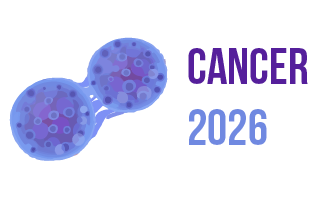4th International Conference on
Innovations and Advances in Cancer Research and Treatment
October 08-09, 2026 | Tokyo, Japan

Cancer 2026

Fox Chase Cancer Center, USA
Abstract:
DNA amplification and rearrangements are associated with pathological states such as neurological disorders, cardiac disease and cancer. Our laboratory aims to define the principles regulating selective DNA amplification and rearrangements so we may control these events in disease. By resolving general mechanisms governing selective amplifications and rearrangements, we will build a framework to further understand the molecular basis by which these abnormalities occur in neoplasia and other diseases. The unanswered question remains as to whether distinct mechanisms control DNA copy gains and rearrangements within cells, leading to diseases such as cancer. Recent studies have begun to uncover the importance of epigenetic states in regulating amplification. The question remained as to whether selective extrachromosomal amplification could give rise to inherited genomic rearrangements. Therefore, we set out to test these relationships. We have identified specific methyl-lysine modifiers that controls site-specific DNA amplification, and in turn, rearrangements. These studies leveraged genetic and chemical treatments coupled to cytological approaches and epigenomic profiling to resolve this question. While interrogating the factors controlling the local chromatin, we have also begun to appreciate its impact on inherited genomic rearrangement events. Furthermore, we have been able to establish relationships between the pathways we uncovered and these type of amplification and rearrangements in cancer. Taken together, we have established the key methyl-lysine modifiers generating and preventing DNA copy gains and rearrangements. The most recent studies addressing this observation will be presented at the meeting.
Biography:
Dr. John Whetstine, also known as John W, discovered his passion for science while attending Bolton Agricultural High School in Tennessee, where he earned his high school degree. Despite moving frequently as a child, Bolton became the place where he delved into the world of science, particularly captivated by Punnett squares. Although unsure about the path of a scientist, his high school teacher's influence ignited a love for discovery. Pursuing undergraduate degrees in recombinant genetics and chemistry at Western Kentucky University, he later obtained his PhD in the Pharmacology Department at Wayne State University in Michigan, combining his interests in gene control and chemistry. His postdoctoral fellowship at Harvard Medical School in Massachusetts led him to become part of the team that discovered histone lysine demethylases, a subject he continues to study at the molecular and translational levels. Dr. Whetstine then joined Massachusetts General Hospital and Harvard Medical School, rising to the position of associate professor and Tepper Family Scholar, as well as vice chair of the epigenetics center. Recruited to Fox Chase Cancer Center in December 2018, he is now the Jack Schultz Basic Science Endowed Professor, Director of the Cancer Epigenetics Institute, Co-leader of the Nuclear Dynamics and Cancer Program, and Director of the Genomics Resource. His research has unveiled the role of chromatin factors in driving extrachromosomal DNA amplification, linking these regions to aggressive tumors and drug resistance. Dr. Whetstine's lab has significantly impacted our understanding of DNA replication regulation and copy number control, identifying new biomarkers and therapeutic targets. He has mentored and contributed to the development of the next generation of scientists at various academic levels, with his trainees achieving success at prestigious institutions and in leading pharmaceutical companies. The accomplishments of his trainees stand out as the most cherished stories of his career.
